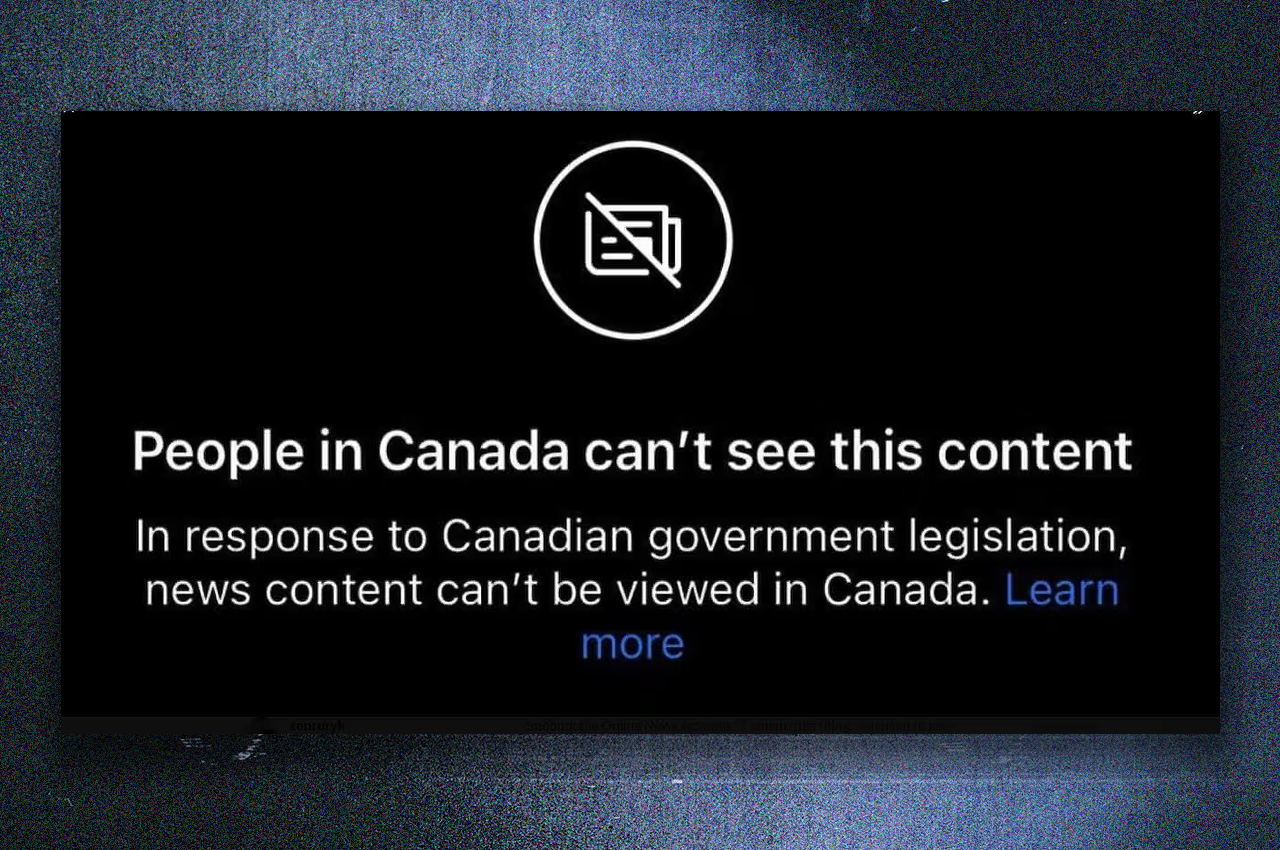September 08, 2023
Meta's Blockade of Democracy
Democracy Corner

In June of 2023, Canada's government enacted Bill C-18 – often referred to as the Online News Act – with the goal of requiring big tech companies like Meta and Google to pay their share for news content hosted on their platforms that in turn generates engagement and ad revenue. Meta refuses to be regulated and will use aggressive intimidation.
Credit: CBCThe blocking of news content on social media platforms owned by Meta in Canada has made international headlines in recent weeks. As wildfires forced thousands of Canadians from their homes in the west and north of the country, they faced the additional burden of Facebook and Instagram blocking communication of news stories on their platforms - including those that may have provided vital information during the time of crisis. Beyond the physical danger posed by the lack of ability to send news over these platforms (including news over direct messages) during the wildfires, Meta’s blockade of news links in Canada presents a threat to democracy that demands global attention.
In June of 2023, Canada's government enacted Bill C-18 – often referred to as the Online News Act – with the goal of requiring big tech companies like Meta and Google to pay their share for news content hosted on their platforms that in turn generates engagement and ad revenue. In Canada, Facebook and Google together generated over 80% of online advertising revenue in 2021 amounting to $12.3 billion. The law would require digital platforms to pay Canadian news businesses between $150 million and $329 million per year.
Other countries have considered similar legislation. In 2021, Australia passed the Australian News Media Bargaining Code, and the US introduced the Journalism Competition and Preservation Act (JCPA). Canada’s C-18 requires the negotiation of fair carriage and compensation deals between tech giants and eligible news organizations. Rather than negotiate, Meta has removed all news entirely.
This is not the first time Meta has demonstrated hostility towards national policy meant to help news organizations survive in the digital world it dominates. They responded to the News Media Bargaining Code by blocking Australian users from the entire platform for days until the government negotiated in the tech giants’ favour.
The Online News Act is far from perfect, and journalists and scholars have pointed
out its many shortcomings. But the takeaway is that Meta refuses to be regulated and will use aggressive intimidation that can be best described as “mob tactics.” As Canadian scholar Natasha Tusikov explained – “Meta’s Canadian news ban during a state of emergency starkly highlights the capriciousness and cruelty of corporate power. But it also provides an ideal opportunity to reflect upon how we can regulate tech companies’ power.”
Given this, it’s all too obvious that we cannot rely on tech giants to support journalism or contribute to the information ecosystem necessary for a healthy democracy. The ease at which Meta pulled out of Australia entirely and blocked journalism from Canadians during a provincial state of emergency dramatizes their core true values: the maximization of profits regardless of social cost. As journalism professor Nick Mathews put it, “time and again, Facebook has demonstrated its prioritization of financial gain over any true dedication to news or democracy.”
Many Canadians, like myself, see this ban as a move that represents something bigger than a few measly millions a year for journalists being deducted from Meta and Google’s combined global earnings of over US $400 billion. It’s a question of Canada’s – or any nation’s – sovereign right to regulate digital platforms that operate in their country. The way that Canada responds to Meta’s strong-arming over C-18 thus sets a precedence for future hostilities, dare any other democratic state try to reign in the corporate powers of tech giants. —Sydney L. Forde
